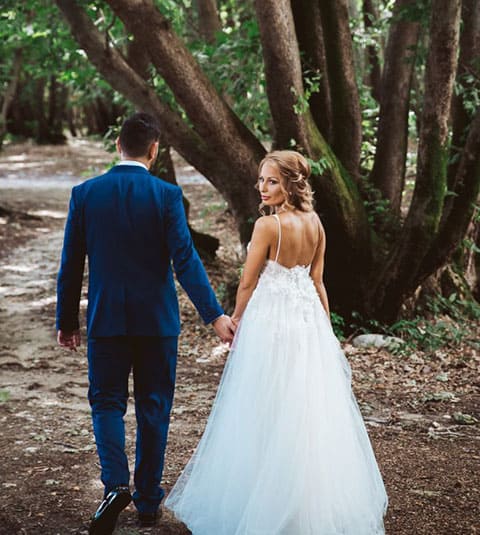
Jul 18
Wedding Civil Partnership in UK Scotland Northern Ireland and Legal Preliminaries
Wedding Civil Partnership in UK Scotland Northern Ireland and Legal Preliminaries
The Civil Partnership Act 2004 gives same sex couples in the UK the right to register their partnership and acquire a new legal Status as ‘registered civil partners’. This includes rights pertaining to partner’s children, taxation, inheritance, pensions and next-of- kin, such as registering a death, bereavement benefits, compensation in the event of a fatal accident and the right to stay living in a shared rented home.
There is no requirement for couples to say particular contractual words as part of the registration process nor will there be any legal necessity for any form of ceremony. The minimum requirement for the civil partnership ceremony will be the couple attending before an authorized Civil Partnership Officer and signing the schedule in the presence of two witnesses.
If the couple wish to have a ceremony around the signing of the schedule, which makes the formation, they need to discuss this with the Civil Partnership Officer, who will be present at the venue or register office.
A civil partnership is formed when the proposed civil partners sign the relevant document in the presence of an authorized Civil Partnership Officer and two witnesses. The civil partnership comes into being once the second civil partner signs the document. Refer to the General Register website (gro.gov*uk) for information.
Scotland
Unlike England and Wales, it is not necessary to have parental permission to register a civil partnership while aged 16 or 17, nor to be resident in Scotland to register a civil partnership. People from outside the European Economic Area (the EU plus Norway, Iceland and Lichtenstein) or Switzerland need to obtain permission from the immigration authorities to register a civil partnership.
To register a civil partnership, both partners must submit a civil partnership notice to the District Registrar and this can be done by post. A date for registration is arranged with the Registrar – this must be at least 15 clear days after the date the notices are submitted. Registration involves a non-religious ceremony, which both the couple, and two witnesses over 16 years of age, must attend. While nothing of a religious nature may be included in the ceremony, it is possible to have music, poetry, exchange of rings, etc. and this should be discussed with the Registrar, as should any flower arrangements. The legal effects of civil partnership Start as soon as the civil partnership schedule is signed at the ceremony.
Registration can take place at a registration office, or at any other place agreed with the local authority – the General Register
Office for Scotland publishes a list of places approved for registering a civil marriage, and most of these places should also be available for registering a civil partnership. If the place you want to use is not on the approved list, speak to the District Registrar for the relevant district. The main exception is religious premises: like civil marriage, a civil partnership cannot be registered on religious premises. However, a couple can have a blessing of their relationship on religious premises immediately before or after signing the register at a nearby location. Refer to the General Register Office for Scotland website gro-scotland*gov*uk for further information.
Northern Ireland
Both persons are required to be at least 16 years of age on the day of the civil partnership registration. Persons over 16 and under 18 need the consent of parents or a guardian. Two persons, 16 or over, need to be present to act as witnesses.
The ceremony may take place in a Registrar’s Office or at an approved place. Details of approved places may be obtained from the Registrar of the District where the civil partnership is being registered or the General Register Office for Northern Ireland. Alternatively, you can apply to the Registrar of the District in which the civil partnership will be registered for a temporary approval at a place of your own choice, such as your own home. The Registrar will give advice regarding the fee and the application procedure.
By law, each party to a proposed civil partnership registration is required to complete a Civil Partnership Notice Form. These have to be submitted to the Registrar of the District where the registration is to take place, together with the relevant documents, declarations and fees, either in person or by post. Notice must be given in the 12-month period prior to the date of the registration and should be with the Registrar eight weeks before the ceremony. If either party has been married before or has entered a previous civil partnership, the notices should be with the Registrar ten weeks before. The minimum period is 14 days before the date of the proposed registration.
After the civil partnership registration you can obtain a copy of the civil partnership certificate from the Registrar on payment of the appropriate fee.
While nothing of a religious nature may be included in the ceremony, it is possible to have music, poetry, exchange of rings, etc. and this should be discussed with the Registrar, as should any flower arrangements. Refer to the General Register Office (Northern Ireland) website (groni*gov*uk) for further information.
 Legal preliminaries
Legal preliminaries
• It is a legal requirement that both parties be of the same sex, aged 18 years or over on the date of application (or able to provide appropriate consent, e.g. from a parent or guardian, if
aged 16-18), not be related to each other and not already be in a civil partnership or marriage.
• Notice of intention to form a civil partnership to be given by both parties and you cannot give
more than one year’s notice. The notice is a legal document that must be given and signed by
each of the people forming the partnership.
• You must both have lived in any district in England and Wales for at least seven days
immediately before giving notice. However, if one of the partners is subject to immigration control,
it will be necessary for both partners to attend a designated register office (see below) to give the
required notice. Information on this aspect can be obtained from your local register office. It does
not matter if either of you moves to a different address after the notice has been given.
• If you live in different registration districts, you can choose to hold the ceremony in the
register office or licensed premise in the district where either of you live or in any register office or
licensed premise of your choice. Notice must be given to the Civil Partnership Officer in each
district.
• If you both live in the same district, notice must be given by both of you.
However, it is important to first contact the district where you wish the ceremony to take place.
• Once you have given notice you must wait 15 clear days before the partnership can be formed.
• Partnerships may then be formed between the hours of 8 a.m. and 6 p.m. at any time within 12
months from the day on which you gave notice.
Designated Office System
This relates to a partnership involving someone who is subject to immigration control. Initially a letter must be obtained from the Home Office stating they can form a partnership in the UK. They then need to give formal notice to a Designated Office. Details of such notices will change if one or both of the parties are subject to immigration control and also the location of the persons and their Designated Office. The Home Office or the Superintendent Registrar can supply details and a list of the Designated Offices in England and Wales.





